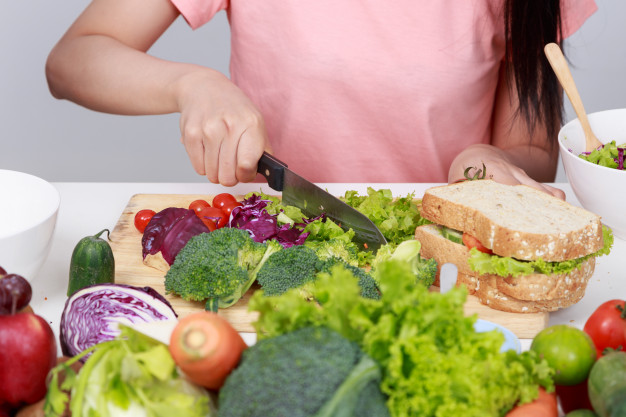4 Nutrition Facts that you Need to Know!

Every morsel of food that we eat is carefully and laboriously broken down by our digestive tract and juices to extract the gold – NUTRIENTS – hidden in them. As we become more health conscious as a society, to combat the negative effects of excessive snacking, here are a few essential facts you should know about the little globules of gold that run through your body!
Sunbathe for that essential Vitamin D
Vitamin D not only helps promote bone strength (owing to the role it plays in Calcium uptake in our bones), but also plays a crucial role in regulating our immune and neuromuscular systems. The largest source of this vitamin comes from the UV rays of the sun. Our body produces this vitamin when exposed to sufficient sunlight. So, remember to soak in some sunshine – it’ll also make you happier!
Our body was not designed to digest Trans Fats
Also known as hydrogenated oils, Trans Fats are one of the worst things you can subject your digestive tract to. The process for making it involves a metal catalyst, a highly pressurized chamber, hydrogen gas and extremely high temperatures. That process ends with the birth of a sludgy oil that is toxic and solid at room temperature. Studies have shown that Trans Fat is the key culprit in a host of diseases including heart disease, depression and Alzheimer’s.
Raw and Unprocessed Foods are Nutrition Powerhouses
Salads are not just a dieting fad. Unprocessed foods like raw fruits and vegetables are the best and most natural source of nutrients for your body. They are easily broken down by the body and don’t overload your digestive tract. Make them a regular part of your meals, even if it just starts with a couple of slices of cucumber or a fresh juice with every meal.
Small and frequent meals are not a one-way ticket to weight-loss
Making healthy and nutritious food choices are the key, along with eating when you are hungry. Nibbling at mini meals are not as effective as you may think in the long run. Several studies have found no relationship between the two, and for cases where there has been a change, it has usually been the inverse; weight gain and feeling heavy.
Carbs don’t make you fat, nor does fat
Context is everything when it comes to a balanced and nutritious life. Even though fat-rich foods have a higher calorie count per gram, when balanced with a protein and vitamin-rich diet, these calories energize your body as opposed to becoming deposits of fat. The same goes for carbs. It is essential to try and understand the food that you are consuming, not in isolation, but as a mix.
Ultimately, the best way to support long-term and overall wellness is to make informed and healthy choices about the nutrients that you consume.

